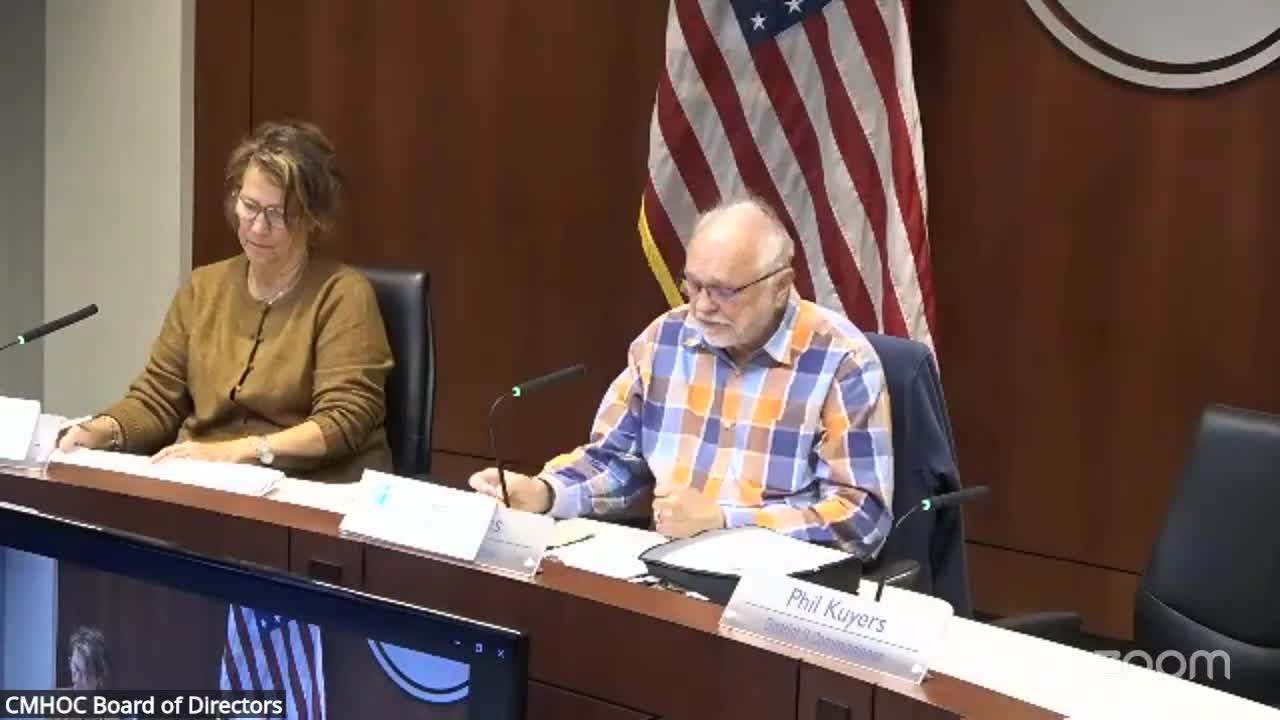CMH of Ottawa County warns state Medicaid restructuring, provider rate gaps could reshape services; plans new residential option
Get AI-powered insights, summaries, and transcripts
Subscribe
Summary
CEO Michael Brashears told the Community Mental Health of Ottawa County board that a state plan to restructure Medicaid management and ongoing low provider rates are prompting a review of service delivery and a push to create local high‑need residential capacity.
Community Mental Health of Ottawa County CEO Michael Brashears told the board on Oct. 24 that a state plan to restructure how Medicaid is managed — and persistent low rates paid to outpatient and residential providers — is creating uncertainty for local service access and could force CMH to provide more care directly.
The issue surfaced in Brashears’ regular report, during which he summarized a recent court decision allowing the state to proceed with a proposal to change who manages Medicaid funds and the procurement timeline for new Prepaid Inpatient Health Plans (PHPs). He said a judge will review how any new manager would interact with CMHs to ensure CMHs can meet their obligations under state law. "We would not co-manage the Medicaid like we do now. We would be a service provider pretty much only of services," Brashears said, describing the proposed change.
The board was told why this matters locally: several outpatient providers have stopped accepting Medicaid and others are struggling under current reimbursement levels, Brashears said. He said CMH is assembling an outpatient therapy rate group to evaluate the impact and whether some services will need to be brought back in‑house to preserve access for people with severe mental illness, families and adults with developmental disabilities.
Brashears also described work on residential care for people with very high needs. He said CMH and partners have identified a cohort of individuals whose care costs could run between $500 and $1,000 per day and who require continuous monitoring. He said he will work with other CMHs and the regional entity to ask the state to recognize and fund a new "enhanced health and safety" level of care for those individuals; he estimated that about 15%–20% of residential recipients fall into a very high‑need category and that residential care accounts for roughly 30%–40% of agency expenditures.
Separately, Brashears said CMH is converting the Robert Brown resource into a specialized residential program, to be called Holland's Hope, operated with partner Hope Network. He said the program will start with one high‑need resident and expand slowly; staff hiring is already underway and leaders expect the program to be operating in the next couple of months. "We're converting the Robert Brown resource into a resource that we direly need in Ottawa County, which is residential care for the highest needs people," Brashears said.
Brashears framed these items as stabilization work: if contracted providers cannot serve people because of insufficient rates, CMH may have to provide those services directly. He told the board he will pursue additional revenue and policy changes at the regional and state level and will bring proposals back to the board for millage and budget deliberations.
Provenance: CEO report began at the meeting CEO report segment and discussion of residential programs and state procurement (meeting transcript, CEO report starting at 1655.40; Robert Brown/Holland's Hope discussion ending at 2999.79).
